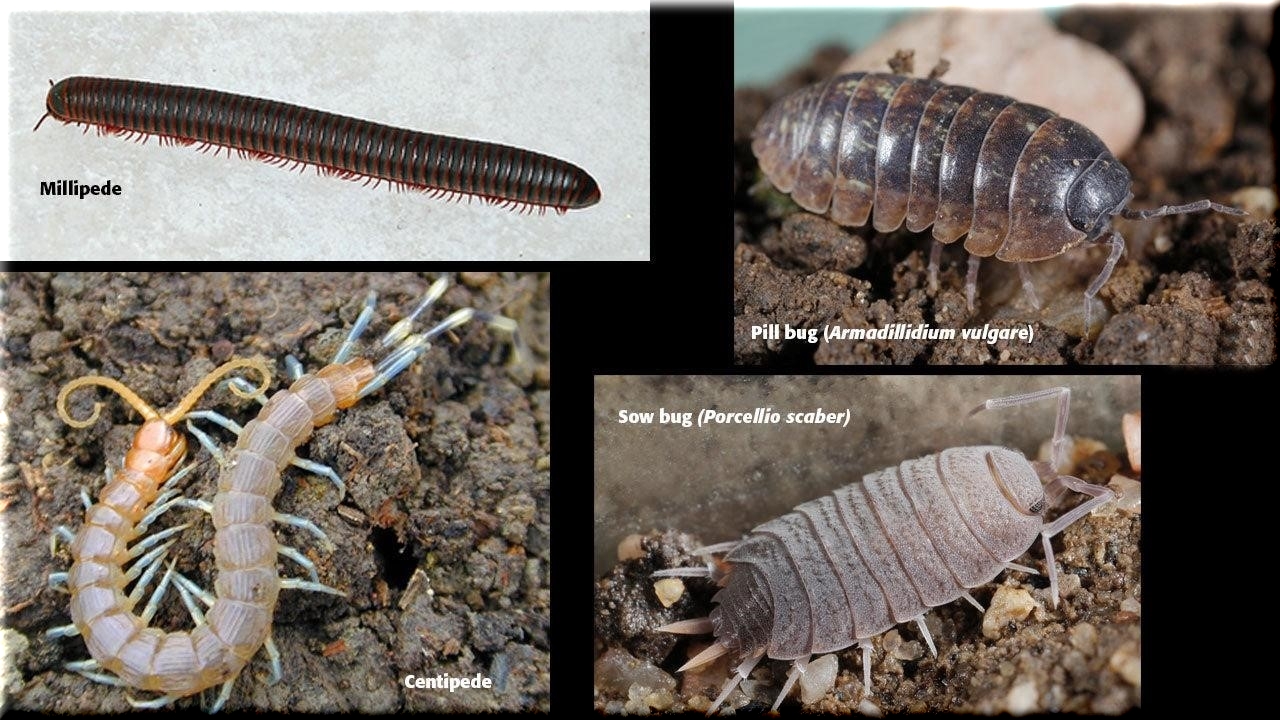Garden
Are Centipedes Good for the Garden? The Benefits of These Beneficial Bugs
Have you ever spotted a long, fast-moving creature scurrying through your garden and wondered if it was a friend or foe? Centipedes are often seen as creepy crawlies, but they can actually be beneficial to your garden ecosystem. In this article, we’ll delve into the world of centipedes and explore why they’re often considered a gardener’s friend, rather than a pest.
The Benefits of Centipedes in the Garden
Centipedes, with their many legs and quick movements, are known to be effective predators in the garden. They are natural pest control agents, helping to keep populations of common garden pests in check. These beneficial insects prey on a wide range of garden pests, including aphids, slugs, snails, and even other insects.
Centipedes are also valuable contributors to soil health. They break down organic matter like leaf litter and dead insects, transforming it into nutrients that enrich the soil. By doing so, they help to improve soil structure and increase the number of beneficial microorganisms that live in the soil.
Understanding the Role of Centipedes in the Ecosystem
Think of the garden as a miniature ecosystem, and centipedes play an important role in maintaining its balance. As predators, they help to regulate the populations of other insects, preventing any one species from becoming too dominant. This is particularly important when it comes to pests, which can quickly damage crops and plants if left unchecked.
Centipedes also interact with other garden organisms, including birds, amphibians, and reptiles. They are part of the food chain, providing sustenance for other animals, further contributing to the delicate balance of the garden ecosystem.
How to Attract and Manage Centipedes in Your Garden
If you want to encourage centipedes in your garden, there are a few things you can do. Centipedes prefer moist, damp environments, so creating these conditions will make your garden more attractive to them. Leave some leaf litter and mulch in place, as these materials provide hiding spots and moisture.
Log piles and rock gardens can also create ideal habitats for centipedes. These areas provide shelter and protection, as well as a source of food. You can also consider encouraging other natural predators, such as praying mantises and ground beetles, which are beneficial to the garden.
It’s important to minimize the use of pesticides in your garden, as these chemicals can harm beneficial insects like centipedes. Instead, focus on organic gardening practices that are less harmful to the environment and your garden’s ecosystem.
When Centipedes Might Become a Problem
While centipedes are generally beneficial to the garden, there are times when they might become a problem. In rare cases, they might damage plants by feeding on their roots or tender seedlings. However, this is usually not a significant issue, and you can manage it by removing excess leaf litter and mulch, reducing moisture levels in your garden, and creating less attractive habitats for them.
FAQ
Are centipedes harmful to humans or pets?
Centipedes are not typically aggressive towards humans or pets, and their venom is usually not harmful. However, they can bite if they feel threatened, which may cause pain and swelling.
Do centipedes eat plants?
Centipedes primarily eat insects and other invertebrates. They rarely cause damage to plants, but they may nibble on tender seedlings in rare cases.
How do I get rid of centipedes in my house?
To prevent centipedes from entering your house, seal cracks and openings in the foundation, remove clutter, and keep the house dry. You can also use a vacuum cleaner or broom to remove them.
What are the signs of a centipede infestation?
Signs of a centipede infestation include seeing them crawling around your home, finding dead centipedes, or noticing droppings.
How can I tell the difference between a centipede and a millipede?
Centipedes have one pair of legs per body segment, while millipedes have two pairs of legs per segment. Centipedes are also faster and have a flattened body shape.
Conclusion
Centipedes, often viewed as creepy crawlies, can be beneficial to your garden. They are natural pest controllers and help to maintain the balance of your garden ecosystem. By understanding their role and creating an environment that encourages them, you can reap the benefits of their presence in your garden.
Remember: If you have any questions or comments about centipedes or other garden creatures, leave a comment below. We encourage you to explore our website for more insightful articles and analyses on all aspects of gardening!



Leave a Reply